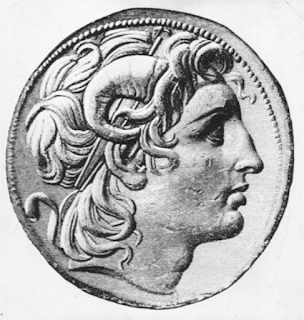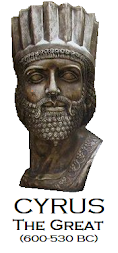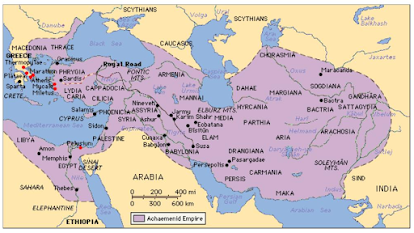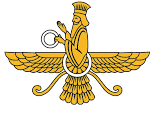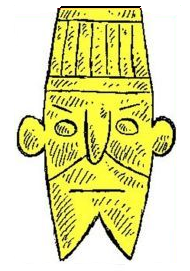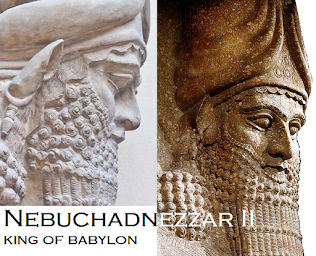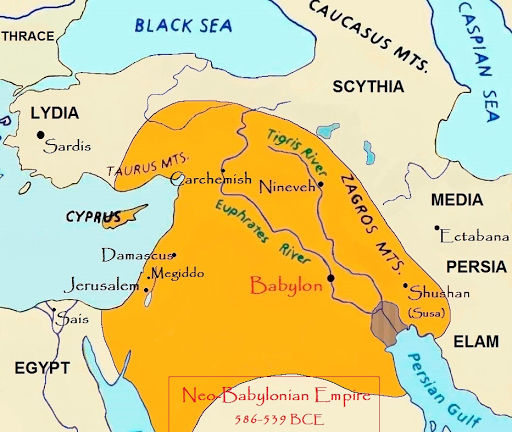iii. The BELLY & THIGHS of BRONZE (vv. 32b, 39b): MACEDONIA/GREECE (cf., 8:20-21).

![]()
v. 39b: “…then another third kingdom of bronze, which will rule over all the earth.”
o The nation that vanquishes Persia is clearly identified in 8:20-21:
"The
ram which you saw with the two horns represents the kings of Media and Persia. The
shaggy goat represents the kingdom of Greece…”
“…which will rule over all the earth.”
Not only would the conquests of Alexander the
Great engulf the Silver Kingdom of Persia, but with enormous speed (cf. 7:6,
8:5) he would extend his rule even to the borders of India before dying at age
33 (323 BC)—a brief decade after invading Asia Minor (i.e., modern Turkey) in
334 BC!
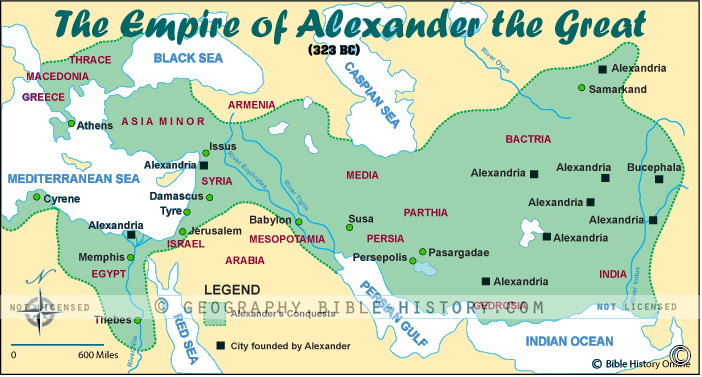
o
“all
the earth;” from Daniel’s perspective. Alexander had commanded that he
be called “king of all the world.”
o The Bronze Kingdom represents both Alexander’s original kingdom and the four Grecian successor states that dominated the Middle East until the time of Roman ascendancy.
o
Bronze: an alloy of copper
and tin—far less valuable than gold or silver, but stronger for military use.
Suggestive of lessening administrative efficiency, but greater military prowess.
Alexander (356-323 BC), one of the most influential conquerors of antiquity…
o The son of Philipp II of Macedon, the conqueror
and unifier of the Greek city states, and a pupil of the philosopher Aristotle.
o Alexander (called the
“son of god” by the oracle of Zeus-Ammon) believed that he had a special
mission to spread Greek (Hellenic)
culture throughout the world, building cities throughout his empire in the
Greek mode (16 of which were named after himself—“Alexandria”).
o The resulting fusion
of Occidental (western) and Oriental (eastern) culture resulting from
Alexander’s conquests was known as Hellenistic
culture.
o This dissemination of
Greek language and culture throughout the world helped pave the way for the coming of the Gospel. The Old Testament
would be translated into the Greek, and the New Testament would be written in
common Greek—a universal language.
o Alexander is
presented as an instrument of Divine judgment and as an antitype of
Messiah in the prophecy of Zech. 9:1-10.
o After Alexander’s
death from fever in Babylon, the empire was divided amongst four of his
generals (the Diadochi, or ‘successors’—the four horns of Dan. 8:8).
